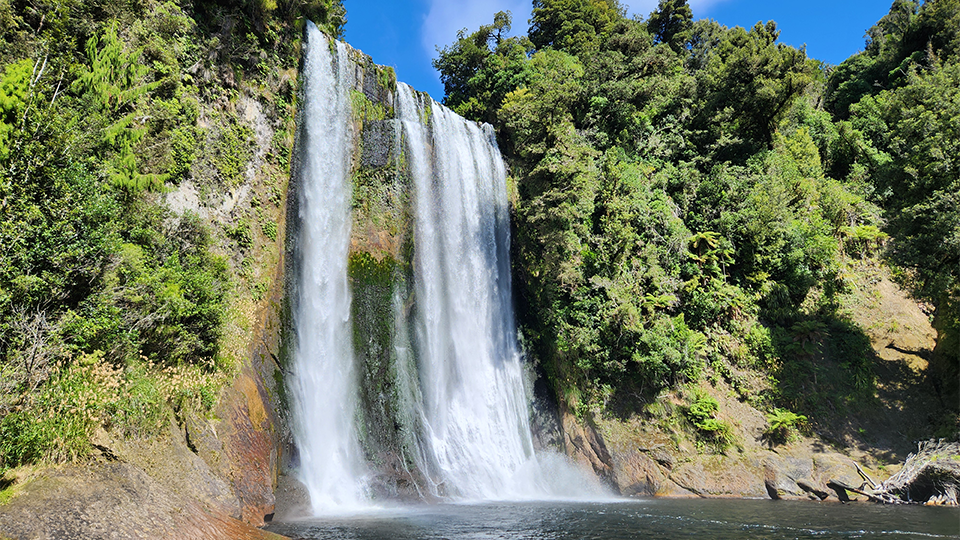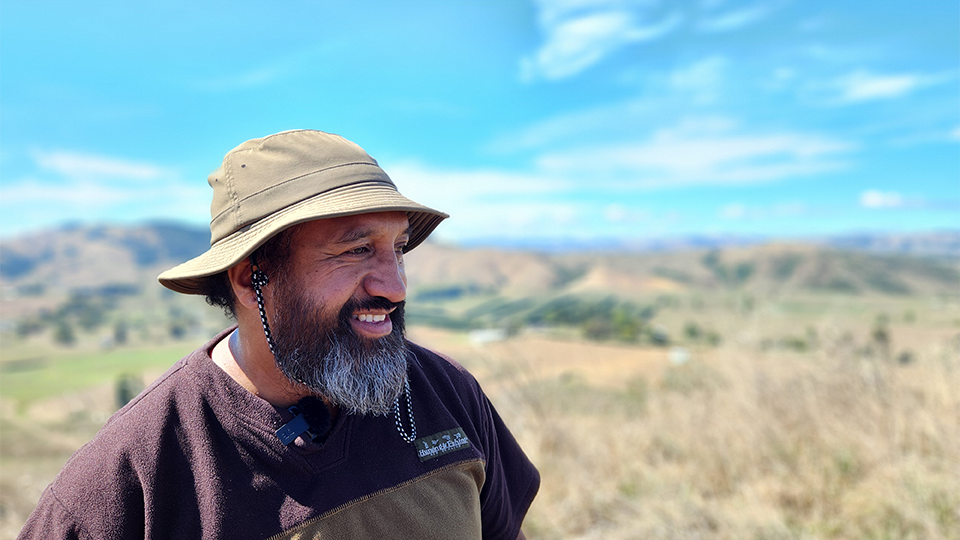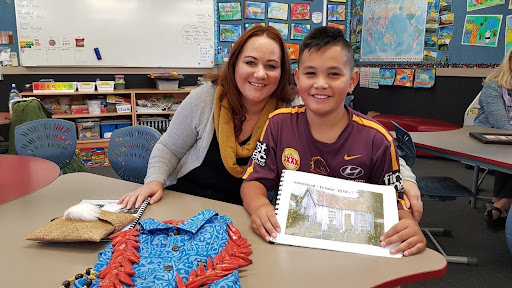← Origin stories discover more
Have you ever wondered where your ancestors came from, or why certain places feel special to your whānau?
Every place has a story, and on this virtual field trip, you will discover more about the nature of such connections, learning about an origin narrative from the iwi of Raukawa and their tūpuna.
During the field trip, you'll step into the narrative and visit important places in the rohe of Raukawa, hear oral histories from iwi members, and discover how the past still lives in the land today. These pūrākau are the history of those who travelled, struggled, built relationships, and made the land their home.

On the field trip, you'll visit a selection of important places in the rohe of Raukawa, such as Te Rere i Ōturu. Image: LEARNZ
Why origin narratives matter
Through exploring the journeys and deeds of ancestors, we begin to understand where we come from, who we are, and why certain places are so important to our identity today.
Origin narratives:
- help us learn how ancestors lived, moved, and made sense of the world
- show us connections to the whenua and help us understand our relationships to te taiao – because the land remembers the footsteps of those who came before
- help us explore the ideas of mātauranga and tikanga that are maintained today
- teach us to respect and protect the places and people that hold our history.
Learning and connecting through origin stories
Whakapapa – genealogical connection
Whakapapa is more than a family tree – it’s how Māori understand their links to people, land, and the universe. Everyone is part of a bigger story.
Oral traditions – narratives that live
Many pūrākau Māori are spoken, not written. These narratives are passed down through generations, describing epic journeys, heroic deeds, and sacred places.
Te reo Māori – language of the ancestors
Te reo Māori is full of clues about the past. Learning key words and phrases helps unlock the meaning in these narratives.
Learning from the people
Hearing directly from iwi and hapū, the people who hold and protect these narratives today, is a useful way to learn about origin narratives. Engaging Māori community members, including iwi and hapū, offers unique perspectives on ancestral narratives and traditions.

During the field trip, you’ll hear narratives directly from Raukawa iwi. Pictured is Quinton – Raukawa ki Wharepūhunga. Image: LEARNZ.
History and evidence
Looking at historical records and archaeological finds supports these narratives and adds new details about early life in Aotearoa.
Tracing lineages
Investigating whakapapa records and family histories can help individuals connect with their own ancestral roots and learn about their family's journey.
Respecting cultural sensitivity
Approaching any investigation into origin narratives requires respect and sensitivity, recognising the importance of Māori cultural practices and perspectives.
Some things to think about
- What narratives do you know about your ancestors?
- Are there special places your family talks about?
- What does it mean to belong to a place?
- How might learning about historical narratives help you understand yourself better?
- How could you find out more about your whakapapa and ancestry?
This virtual field trip is more than just learning about the past – it's about learning to think about your place in living history.

Māori kupu | key words
tūpuna | ancestors
rohe | area, region
whakapapa | genealogy
whānau | family group
pūrākau | narrative, story
iwi | tribe
hapū | sub-tribe
te taiao | the environment
Source: Museum of New Zealand Te Papa Tongarewa | Who are our ancestors and what are their stories



